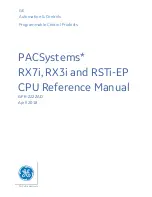
1.
B.
1450-2
OPERATION
PRECIPITRON
nounced. With the fan and power pack operating
properly, all mist should be drawn from the work
space and clean air should exhaust from the unit.
Starting of the Unit.
Mter unit and duct system
have been properly installed and adjusted, arrange
ments should be made for the Westinghouse service
representative to give the unit a start-up inspection.
OPERATION
Principle of Operation.
PRECIPITRON operates
on the electromc prmc1ple that oil mist may be re
moved from the air by first giving the mist an elec
trostatic charge (ionizer) and then deflecting the
charged mist particles by electrostatic forces to
the collecting surfaces (cell plates). When connected
to a suitable duct system, electric power and drain
facilities, the unit will effectively clean and salvage
ventilating air with a minimum of service. As the
oil is collected, it drains from the cell plates onto
the ionizer, and then through the filter to the drain
pan. This flushing action plays an important part
in eliminating or reducing the need for cleaning the
internal components of the unit.
Cabinet
is designed for maximum serviceability.
Cells, ionizer, and filters are supported by tracks
permitting easy removal. Cells are held with angle
clips bolted to the cabinet sides. Hinged door is
fastened with two h a n d operated screws and is
gasketed to prevent air leakage. Fan and motor
assembly forms the top of the unit and the drain
pan forms the bottom. Direction of air flow is
upward.
Fan and Motor Assembly
is sized to draw rated
air volume through the unit when connected to a
properly designed duct system. (See Fig. 5) Fan
wheel is attached to the motor shaft with two set
screws.
FIG. 5
FAN AND MOTOR ASSEMBLY·
.
Cleanable Filter
prevents chips and large parti
cles from entering the high voltage components.
Ionizer
(Fig. 6) charges the airborne particles.
Consists of a series of horizontal tubes, between
which small wires are suspended from a frame
work set off with insulators. Horizontal tubes, being
attached to the casing, are at
potential. Ap
plication of high d.c. voltage
KV) between wires
and tubes creates an ionizing zone where airborne
particles receive electrostatic charges.
Ionizer Wires.
Attached near the center of each
wire is a dampener (ball) which prevents the wire
from vibrating during operation. These wires are
supplied complete with dampeners and pre-looped
ends from the factory, and must be completely re
placed
if
the wire breaks or the dampener becomes
damaged or loose. To check the effectiveness o f
6
FIG. 6
IONIZER
the dampener, pluck the wire to see that the vibration
dampens in one or two seconds. Wires should be
taut and centered between the tubes.
Cells.
Charged mist passes to the cells where
it is collected. Cells comprise an assembly of
many flat plates equally spaced and supported on
tie rods. These plates are
arranged in
two sets,
one grounded, and the other supported on insulators.
High d.c. voltage
(6 KW)
applied between the sets
creates a strong electrostatic field which forces
the charged particles out of the air stream onto the
plates.
Drain Pan.
c o l l e c t s oil as it drains from the
cell plates.
Power Pack
provides energizing d. c. voltages
for the ionizer and cells from a 115 volt, 1 ph.,
power source. (See Fig.
7
.) On the front panel is
an ammeter to warn the operator when the unit is
not functioning properly and an "on-off" circuit
breaker providing overload protection for the power
pack. The transformer raises the incoming voltage
where it is converted to pulsating d.c. by the recti
fier tubes. The two stage capacitor smooths out
the pulsating output voltages and doubles the volt
age for the ionizer circuit.
Protective Devices.
For safety of the operator,
the cabinet door and power pack access panel are
equipped with screw operated switches. These open
the 115 volt circuit and delay access to the interior
high voltage parts until the capacitor charge has
drained off to a safe value through discharge re
sistors built into the capacitor. These switches
should not be tampered with even though the time
consumed in turning the screw may seem unneces
sary. The screw at the cabinet door may be pushed
into place without turning, but must be fully un
screwed to open the door.
Operating Requirements.
Cleanliness of internal
components is important because the efficiency of
the unit will decrease as the cells, and particularly
TRANSFORMER
VOLTAGE TAPS
TEqM.NAL
BLOCK lUNDER
TOP PANEL}
FIG.
7
POWER PACK
CIRCUIT
BREAKER
www
. ElectricalPartManuals
. com


























